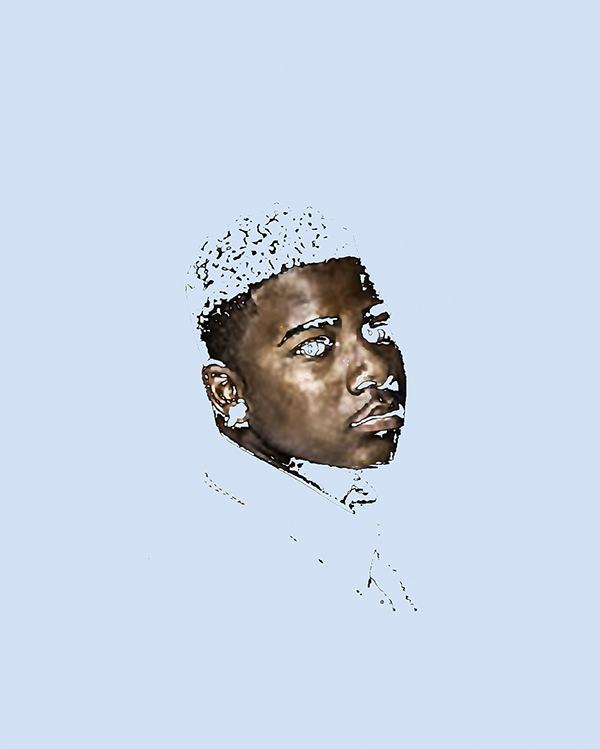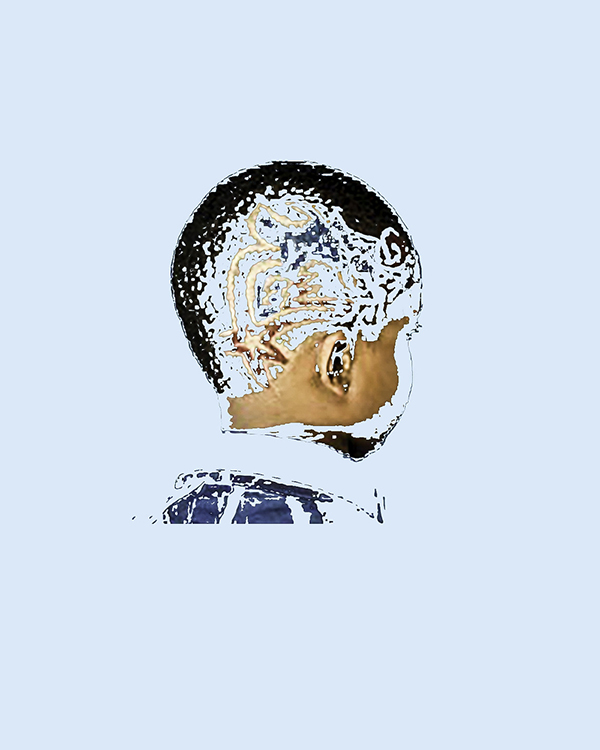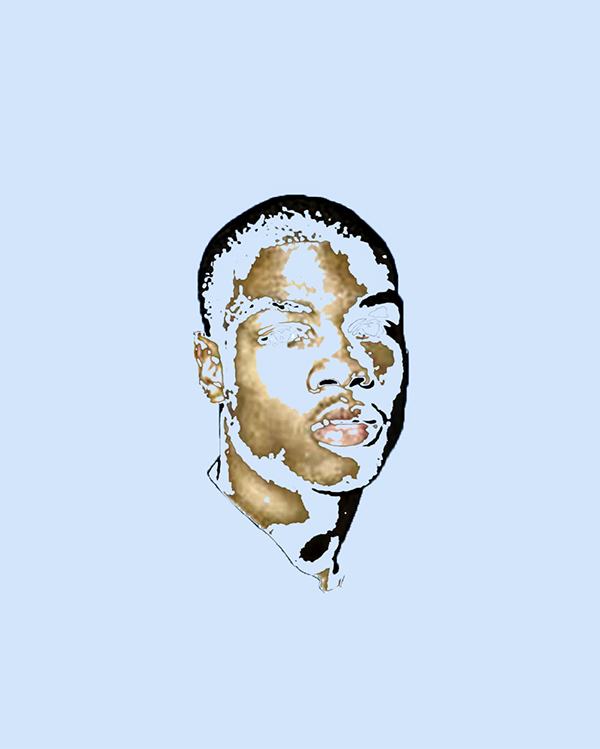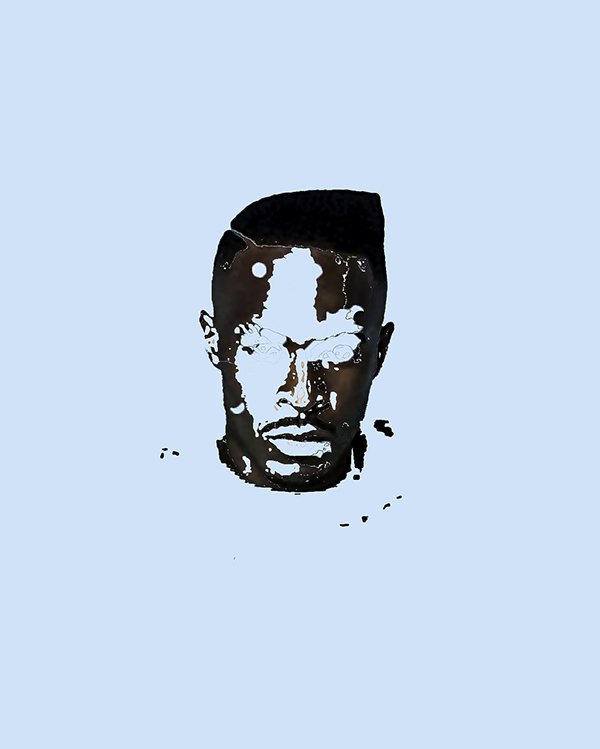Bad Selections
Digitally Altered JPG
Inkjet Prints
Digitally Altered JPG
Inkjet Prints
2014
![]()
![]()
![]()
![]()
In moments of stress our bodies react. Physically they signal growth or deterioration. Sixth grade was an extremely stressful year for me. The stress I experienced caused my alopecia areata (AA) to flare up. AA is an autoimmune disease in which hair is lost, usually from the scalp, due to the body’s failure to recognize “self.” The body destroys its own tissue as if it were an invader. My hair began to fall out, and my peers made fun of me. They brought patches and glue to class.
In Bad Selections (AA) 2014, I appropriate images from barbershop charts. Placing them onto a blue backdrop in Photoshop, I crudely select fields of the face to delete. The resulting image is graphically arresting as the sky blue seems to emerge through the distorted face. The lightness of the colors and the floating nature of the head suggest a negated body consumed by blue. Each portrait is a broken person, violently disfigured against the backdrop of innocence and youth. In sixth grade, I began to learn about the dynamics of educational institutions—where I did or did not fit in them, based on my perceived defects. The educational institutions that ostensibly empower us can sometimes make us feel incompetent and incapable.




In moments of stress our bodies react. Physically they signal growth or deterioration. Sixth grade was an extremely stressful year for me. The stress I experienced caused my alopecia areata (AA) to flare up. AA is an autoimmune disease in which hair is lost, usually from the scalp, due to the body’s failure to recognize “self.” The body destroys its own tissue as if it were an invader. My hair began to fall out, and my peers made fun of me. They brought patches and glue to class.
In Bad Selections (AA) 2014, I appropriate images from barbershop charts. Placing them onto a blue backdrop in Photoshop, I crudely select fields of the face to delete. The resulting image is graphically arresting as the sky blue seems to emerge through the distorted face. The lightness of the colors and the floating nature of the head suggest a negated body consumed by blue. Each portrait is a broken person, violently disfigured against the backdrop of innocence and youth. In sixth grade, I began to learn about the dynamics of educational institutions—where I did or did not fit in them, based on my perceived defects. The educational institutions that ostensibly empower us can sometimes make us feel incompetent and incapable.